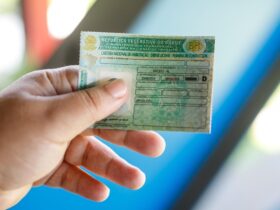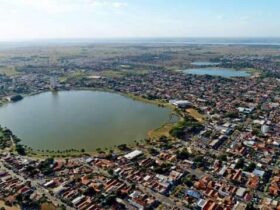Fractions such as CCP and Red Command use gas stations for money laundering
Mato Grosso into Sul entered the federal police radar, which examines the infiltration of organized crime in the fuel sector in the country. Unprecedented mapping, carried out by a strategic nucleus to combat organized crime, identified 941 suspects of commitment to criminal factions in at least 22 states, 4 of them on the territory of Mato Grosso South. However, the names were not disclosed.
Mato Grosso to SUL is examined by the Federal Police on charges of infiltration of organized crime in the fuel sector. The mapping identified four positions with a possible connection with criminal factions. The investigation, coordinated by the Ministry of Justice and Public Security, aims to dismantle money laundering programs, avoid taxes and manipulate fuel. The emphasis is placed on tracking criminal networks with domestic acting, because organized criminal profits more in the fuel sector than in the case of cocaine trade. By 2020, the operation in Campo Grande has already studied the use of cash washing gas stations.
To reach the list, all members associated with criminal registers and commitment to the police, such as theft of loads and oranges.
The investigation, published by the Folha de São Paulo newspaper, is coordinated by the Ministry of Justice and Public Security, has participated in the Federal Police, IRS, COAF (Council for the Control of Financial Action) and the Ministry of Mine and Energy. The emphasis is placed on dismantling money laundering, fiscal avoiding, using orange and manipulation of fuel.
According to Folha, the study indicates that posts under the control of faction, such as CCP (first command of the capital), Red Command and Northern Family operate with national troops. There is also evidence of militia results.
Although the states such as Sao Paulo and Goiás focus on the largest number of suspicious plants, researchers indicate that the operation of the fraction is distributed in strategic regions, such as Mato Grosso to Sul, by their location on the path of movement, on the border with Paraguay and Bolivia.
Nucleus explains that the high financial movement and intensive use of money in nature make gas stations a good environment to wash illegal resources. For the newspaper, prosecutor Fábio Bechara with São Paulo Public Prosecutor’s Office and a member of Gaeco (a group of special action on combating organized crime) said that interest in the crime in this market dates back to the late 1990s, but in recent years it has softened.
“The fuel sector is naturally attractive due to the size of the transaction. The last investigations even indicate the involvement of distributors and facade companies with well -organized structures,” he said.
In Mato Grosso to SUL, the source of consultation safety sector on anonymous state decided that there were ongoing findings, especially in border regions and in areas with an unusual fuel movement.
Minister Ricardo Lewandowski has already announced in February the intention to unite the findings in a broader investigation, with the National Focus, after recognizing that previously examined matters were punctual and sectoral. The goal is now to track penal networks with simultaneous acting in various parts of the country.
The offensive also occurs among the pressure from entrepreneurs in a legalized sector who condemn unfair competition. According to the legal Institute, Fuel Networks are not able to compete with positions that practice prices below the market by avoiding.
The last study of the Brazilian Public Security Forum reveals that organized crimes benefit in the fuel sector than in the case of cocaine trafficking. While the medicine transfers about $ 15 billion, profits with fuels and lubricants can achieve 61.5 billion R $. The estimated fiscal loss for public cassettes is about 23 billion R $ per year.
By 2020, Gaeco caused a similar operation in Campo Grande in the use of gas stations in washing and redirecting money. Thanks to the fraudulent supply, values were removed in nature at a gas station, which was part of the criminal nucleus.
(With information from Folha de São Paulo)












Leave a Reply